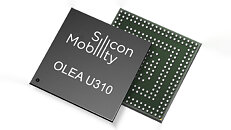- Joined
- Oct 9, 2007
- Messages
- 47,615 (7.45/day)
- Location
- Dublin, Ireland
| System Name | RBMK-1000 |
|---|---|
| Processor | AMD Ryzen 7 5700G |
| Motherboard | Gigabyte B550 AORUS Elite V2 |
| Cooling | DeepCool Gammax L240 V2 |
| Memory | 2x 16GB DDR4-3200 |
| Video Card(s) | Galax RTX 4070 Ti EX |
| Storage | Samsung 990 1TB |
| Display(s) | BenQ 1440p 60 Hz 27-inch |
| Case | Corsair Carbide 100R |
| Audio Device(s) | ASUS SupremeFX S1220A |
| Power Supply | Cooler Master MWE Gold 650W |
| Mouse | ASUS ROG Strix Impact |
| Keyboard | Gamdias Hermes E2 |
| Software | Windows 11 Pro |
The high purchase price of an electric vehicle (EV) remains one of the biggest barriers for potential buyers on a global scale. EVs are currently more expensive to build than traditional gasoline-powered cars, primarily because of the high costs associated with advanced battery and e-motor technology. The near-term solution is to enhance the efficiency of the existing battery technology through energy savings at the vehicle level, including improved integration with EV station infrastructure. This is exactly the challenge that Silicon Mobility, an Intel Company, has now solved with today's launch of the new OLEA U310 system-on-chip (SoC). This next-gen technology promises to significantly improve the overall performance of electric vehicles (EVs), streamline design and production processes, and expand SoC services to ensure seamless operation across various EV station platforms.
Representing a first for the industry, the new SoC is the only complete solution that combines hardware and software in one and is engineered to match the need for powertrain domain control in electrical architectures with distributed software. Built with a unique hybrid and heterogeneous architecture, a single OLEA 310 FPCU can replace as many as six standard microcontrollers in a system combination in which it controls an inverter, a motor, a gearbox, a DC-DC converter and an on-board-charger. Using the 310 FPCU, original equipment manufacturers (OEMs) and Tier 1 suppliers can control multiple and diverse power and energy functions simultaneously in real time.

In addition to the bill of material (BoM) reduction, early figures show up to 5% energy efficiency improvement, 25% motor downsizing for the same power, 35% less cooling need and up to 30 times passive component downsizing compared todays EV's. The benefits of the new Silicon Mobility solution empower EV manufacturers to design software-defined electric vehicles with exceptional performance, improved range and potentially lower production costs because they now have fewer components to integrate. The new solution also complements Intel Automotive's existing family of AI-enhanced software-defined vehicle (SDV) SoCs and collectively will advance the industry's transformation toward an all-electric and software-defined future.
View at TechPowerUp Main Site
Representing a first for the industry, the new SoC is the only complete solution that combines hardware and software in one and is engineered to match the need for powertrain domain control in electrical architectures with distributed software. Built with a unique hybrid and heterogeneous architecture, a single OLEA 310 FPCU can replace as many as six standard microcontrollers in a system combination in which it controls an inverter, a motor, a gearbox, a DC-DC converter and an on-board-charger. Using the 310 FPCU, original equipment manufacturers (OEMs) and Tier 1 suppliers can control multiple and diverse power and energy functions simultaneously in real time.

In addition to the bill of material (BoM) reduction, early figures show up to 5% energy efficiency improvement, 25% motor downsizing for the same power, 35% less cooling need and up to 30 times passive component downsizing compared todays EV's. The benefits of the new Silicon Mobility solution empower EV manufacturers to design software-defined electric vehicles with exceptional performance, improved range and potentially lower production costs because they now have fewer components to integrate. The new solution also complements Intel Automotive's existing family of AI-enhanced software-defined vehicle (SDV) SoCs and collectively will advance the industry's transformation toward an all-electric and software-defined future.
View at TechPowerUp Main Site


